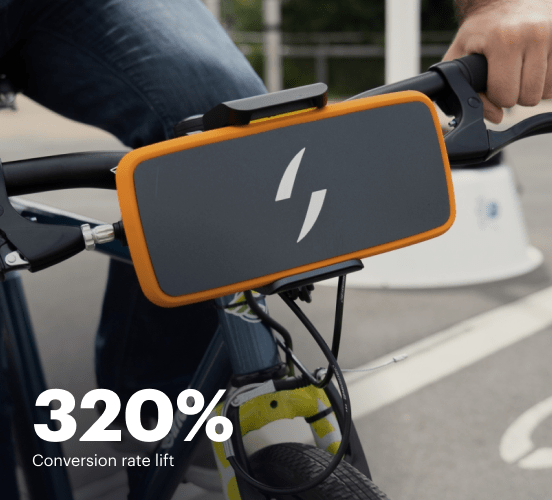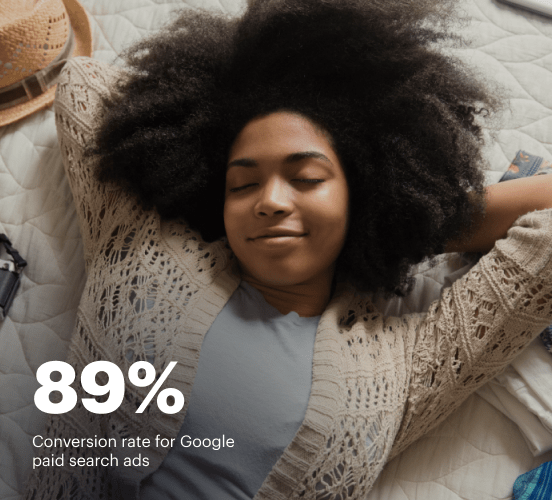Canva vs. Zoho: the best platform for a seamless web experience
Discover how Canva compares to Zoho regarding features and usability. Find out which platform provides the competitive advantage your business deserves.
Get startedSee how Instapage stacks up against the competition
| Feature | Instapage | Other builders |
| Drag-and-Drop Tools | ||
| Conversion-optimized templates | ||
| Manual and AI-powered A/B Tests | ||
| AI content suggestions | ||
| Popups and sticky bars | ||
| Canvas and grid blocks | ||
| Reusable and global elements | ||
| Form and popup builders | ||
| Built-in Heatmaps | ||
| Central analytics dashboard | ||
| Ad-to-page personalization and collections | ||
| Contacts, lists, and email | ||
| Dedicated, full-service CRO experts | ||
| Enterprise-ready platform |
Leading the way in building high-performing landing pages





Why Instapage is the smarter choice for your campaigns
Get everything you need to build, scale, and optimize high-converting landing pages—without coding.
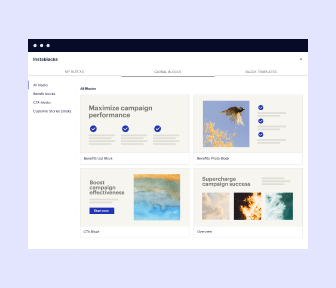
Easier page building without coding
Instapage offers a flexible and seamless page creation experience with a library of 500+ conversion-focused layouts, Instablocks®, a drag-and-drop builder, and AI content generation. With technologies like Thor Render Engine®, you can create on-brand, mobile-responsive landing pages that load quickly and start converting during initial visitor clicks.
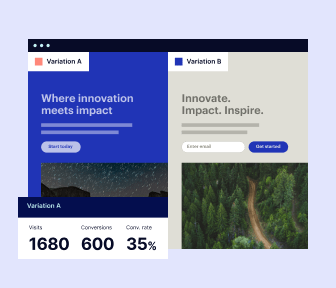
More insights — better results
Instapage lets you see in detail how each landing page experience and variation is performing so you can make targeted changes that boost page conversions. Use heatmaps for a better understanding of on-page activities, run A/B tests and AI-assisted experiments, and then track and evaluate results within robust analytics dashboards.
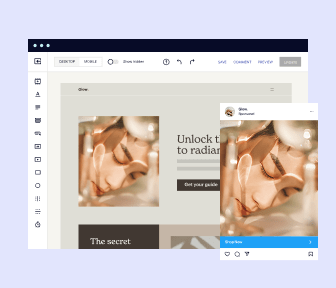
More personalized experiences
Instapage lets you quickly create high-performing landing pages tailored to each of your ad campaigns. Deliver personalized experiences for distinct audiences using dynamic text replacement. Effortlessly align specific advertisements to unique pages with AdMaps. Monitor audience-level metrics using our advanced data tools.
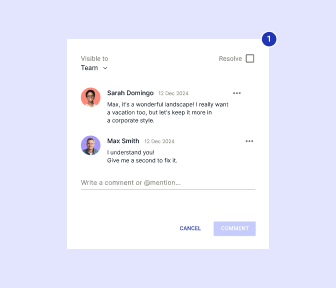
Built-in collaboration
Instapage collaboration capabilities bring your entire team together to speed up the process of landing page review, approval, and launch. No more frustrating and unnecessary revisions or edits scattered across emails. Provide instant feedback, conduct real-time page edits, and securely share your pages with outside stakeholders.
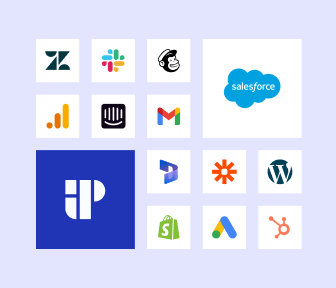
Free up time for your business
Invest time into business growth, not busy work. Launch landing pages faster with reusable forms and templates. Build once, reuse forever.
Explore all integrations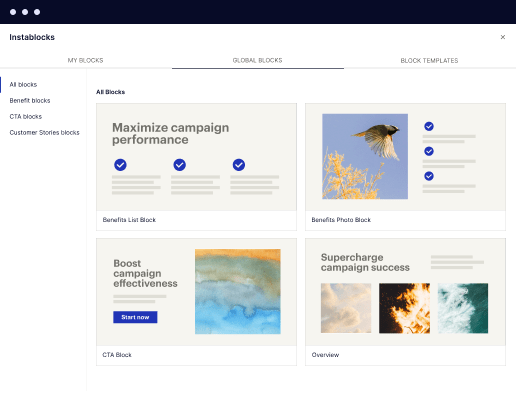
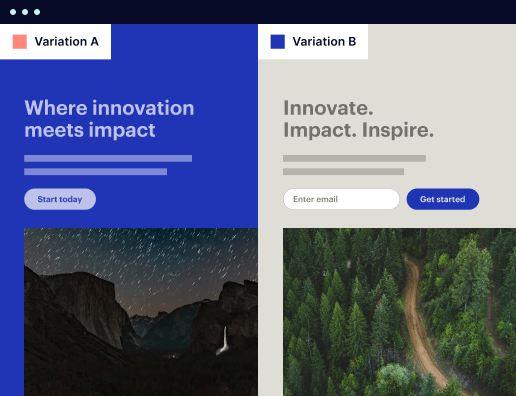
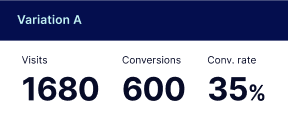
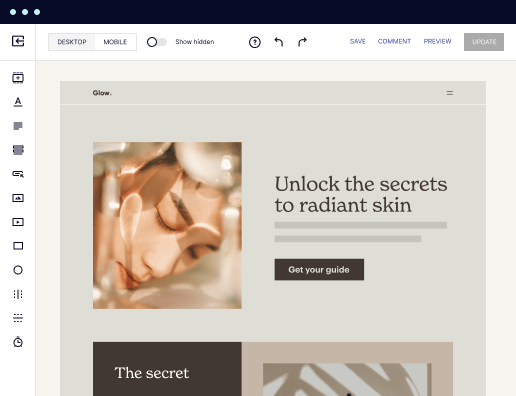

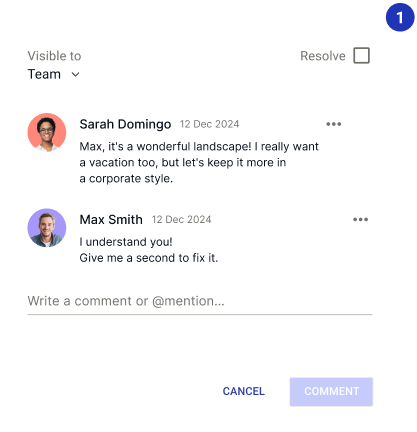
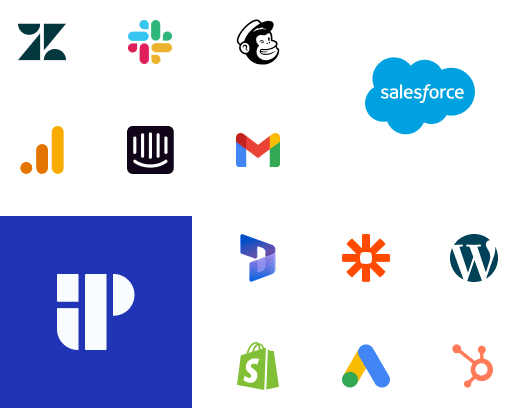
Easier page building without coding
Instapage offers a flexible and seamless page creation experience with a library of 500+ conversion-focused layouts, Instablocks®, a drag-and-drop builder, and AI content generation. With technologies like Thor Render Engine®, you can create on-brand, mobile-responsive landing pages that load quickly and start converting during initial visitor clicks.
More insights — better results
Instapage lets you see in detail how each landing page experience and variation is performing so you can make targeted changes that boost page conversions. Use heatmaps for a better understanding of on-page activities, run A/B tests and AI-assisted experiments, and then track and evaluate results within robust analytics dashboards.
More personalized experiences
Instapage lets you quickly create high-performing landing pages tailored to each of your ad campaigns. Deliver personalized experiences for distinct audiences using dynamic text replacement. Effortlessly align specific advertisements to unique pages with AdMaps. Monitor audience-level metrics using our advanced data tools.
Built-in collaboration
Instapage collaboration capabilities bring your entire team together to speed up the process of landing page review, approval, and launch. No more frustrating and unnecessary revisions or edits scattered across emails. Provide instant feedback, conduct real-time page edits, and securely share your pages with outside stakeholders.
Free up time for your business
Invest time into business growth, not busy work. Launch landing pages faster with reusable forms and templates. Build once, reuse forever.
Explore all integrationsGet started with Instapage in a few steps
-
Create your Instapage account
Start with Instapage by signing up via Google or your email. You'll get access to a free 14-day trial to discover Instapage capabilities. Feel free to cancel anytime during the 14-day trial if you decide that our product is not suitable for your business. -
Build and personalize your page
Create your first landing page from scratch or choose a template from 500+ customizable layouts. Use the drag-and-drop builder to add page elements, fonts, and backgrounds, refine content with AI, or add custom HTML, Javascript, and CSS. -
Review and make edits
Collaborate on page designs and streamline review processes. Invite your team members and stakeholders to review, edit, and provide feedback on your landing page. Collaborate knowing your page is confidential and only accessible to authorized users. -
Publish and track page performance
Publish your page to a domain or custom URL. Connect your pages to the ads you've created and track page performance within the analytics dashboard, run A/B tests and AI experiments, analyze results, and continuously optimize your landing page to maintain high conversions.
Canva vs. Zoho: A Head-to-Head Encounter with Instapage in the Mix
In the vast arena of digital marketing tools, two giants consistently stand out: Canva and Zoho. Both platforms are well-recognized for their distinct features that cater to varying marketing needs, and they are frequently compared against each other. Picture this: marketers from all corners gearing up for a battle of creativity and functionality, where Canva represents bold, eye-catching design elements, while Zoho stands as a robust, multifaceted marketing suite. As we navigate this engaging exploration of Canva versus Zoho, we must not forget that Instapage lurks in the background, ready to throw its own hat into the ring. So, let’s dive in and discover what makes these platforms tick, and see who comes out on top in this compelling three-way tussle. With rich features, user-friendly interfaces, and innovative pricing strategies, the competition is sure to be fierce! From aspiring designers to seasoned marketers, let's uncover how each platform measures up in terms of usability, performance, and pricing, helping you make an informed decision about which tool is best suited for your marketing journey.
Introducing the Contenders
Canva and Zoho are two titans that have carved their niches within the digital marketing landscape. Canva, often viewed as a designated tool for visual creativity, makes designing graphics an accessible joy for even the most inexperienced users. With its robust library of templates and drag-and-drop functionality, Canva has revolutionized how we create stunning visuals. On the other hand, Zoho is more of an all-encompassing suite, combining marketing, CRM, and analytics within one platform. This makes it a favorite among businesses that desire comprehensive solutions. Zoho’s synergistic approach encourages businesses to streamline their operations smoothly. Both platforms attract a diverse audience with their respective strengths, creating a colorful rivalry that keeps users engaged. As we venture further into the distinctive aspects of each tool, keep in mind that their approaches differ significantly, catering to unique market segments in different but impactful ways. But stay tuned; the power of Instapage is also worth considering as it prepares to evaluate its position in this elaborate comparison.
The Feature Showdown
In this action-packed round, features take center stage as we pit Canva's creativity against Zoho's versatile capabilities. Canva boasts an extensive range of functionalities that empower users to craft striking visuals, making it a perfect choice for marketers prioritizing eye-catching graphics. From social media posts to flyers and presentations, it has the tools to engage any audience. Zoho, conversely, offers a well-rounded suite that incorporates marketing automation, email campaigns, and CRM features, delivering a robust framework for businesses looking to manage customer interactions and marketing efforts holistically. Both contenders exhibit impressive offerings. However, there's a rising star in their midst: Instapage, known for creating high-converting landing pages with ease, might just be the final missing piece for many marketers. Expect fierce competition as we explore usability in the next thrilling round!
Spotlight on Usability
In the usability department, both Canva and Zoho cater to different types of users. Canva makes its mark as the go-to tool for newcomers eager to unleash their creativity without extensive knowledge of design principles. With an intuitive interface and an abundance of templates, it's like jumping onto a comfortable swing set at the playground. Meanwhile, Zoho takes a slightly different approach, offering a more robust interface that encompasses numerous features. This means that while seasoned marketers may thrive here, new users might encounter a steeper learning curve. Learning how to navigate Zoho could be likened to exploring a vast mansion—full of potential but one that requires a bit of time to appreciate fully. And within this battle of usability emerges Instapage: a platform well-fitted for users who prioritize simple landing page creation. So, whether you’re a rookie just learning the ropes or a professional tackling complex projects, there’s a platform with your name on it!
Canva's Strong Suit
- User-friendly drag-and-drop interface for effortless design.
- An extensive library of customizable templates.
- Wide-ranging graphic elements, including free and premium content.
- Seamless collaboration features for team projects.
- Accessibility across various devices ensures creativity on the go.
Navigating the Zoho Universe
- Integrated suite containing CRM, marketing automation, and analytics.
- User segmentation for targeted marketing efforts.
- Workflow automation to streamline processes.
- Customizable reporting options to analyze results.
The Overlapping Strengths
- Basic design capabilities to enhance marketing materials.
- Collaboration features to facilitate teamwork.
- Cloud-based solutions for access anywhere, anytime.
- Integration with other software to widen functionality.
- Mobile-friendly designs to cater to on-the-go users.
- User support through forums and help centers.
And while Canva and Zoho engage in their heated contest, let's not overlook Instapage, which might just be the real contender. With its specialized landing page building, it brings a unique flair that appeals to marketers who want an optimized, high-conversion solution. In this marketing ring, it seems that each platform packs a punch, and Instapage’s specialized edge provides businesses with a focused strategy for engagement.
Performance Metrics Showdown
As we step into the performance arena, page loading time and mobile responsiveness command our attention. Slow loading pages are like treacle on a chilly winter's day—nobody has time for that! Canva generally excels with its graphic-heavy projects, but if not optimized, it can slow down, especially when dealing with multiple elements. Meanwhile, Zoho’s platform is more comprehensive, but that complexity might sometimes lead to slower interactions, making efficient user experience critical. Both platforms have their strengths, but can they keep pace with high expectations for speed and functionality? As we explore performance metrics, it’s essential to understand how these platforms stack up against competitors—primarily Instapage—who specializes in super-fast loading landing pages designed for conversion. The performance ramifications could be a game-changer for many users!
The Support Team Face-off
Now, let’s shift our focus to customer support—the unsung hero of the digital marketing toolkit. Both Canva and Zoho offer various support channels, including chat, email, and extensive help documentation. Canva shines with a vibrant community forum, where users can exchange tips and tricks, while Zoho prides itself on personalized support for its business clientele. Imagine the support team as a loyal sidekick in your marketing journey, always ready to jump in with a swift answer or sage advice when needed. This round highlights the importance of having a reliable support system ensuring users can conquer challenges as they arise. So, while both platforms offer commendable support, Instapage stands out with its dedicated assistance tailored for landing page optimization, making sure users have guidance tailored to their unique needs.
A Pricing Showdown
Unpacking Canva's Pricing Approach
- Flexible pricing scales catering to casual users and professionals.
- A free tier that offers substantial features for beginners.
- Affordable subscription plans for individuals and teams.
- No hidden costs or surprises in pricing structure.
Analyzing Zoho's Pricing Tactics
- Comprehensive package options catering to multiple business sizes.
- Tiered pricing that scales with functionalities.
- Attractive discounts for annual subscriptions.
- A free trial period to test capabilities before purchasing.
When we evaluate the pricing strategies of both platforms, it's clear that they cater to various budgets. Canva’s flexibility and value-driven plans make it suitable for individuals with limited funds. In contrast, Zoho’s intricate structure may appeal to businesses seeking broader tools. However, Instapage takes pricing to another level, offering a model that provides excellent return on investment alongside vital tools for landing page development—the best value in this competitive arena.
Exploring the ins and outs of their pricing, it becomes evident that while both platforms have their merits, the surprises and hidden fees often reside in the fine print. It’s always crucial to look deeper than just the upfront cost—sometimes, what seems cheap at first glance might not offer the best value long-term.
Don't Overlook Instapage...
Now, let’s give a nod to Instapage, the silent observer in this competitive landscape. Unlike its counterparts, it specializes in creating optimized landing pages that can significantly enhance conversion rates. Instapage presents a unique value proposition: advanced A/B testing, high-speed performance, and a streamlined user experience that directly addresses marketers’ pain points. By focusing solely on landing pages, it offers businesses the precision they may have been searching for. And while Canva and Zoho each boast their strengths, Instapage’s targeted approach preps users to achieve their goals seamlessly. This might just be the secret weapon in your marketing arsenal, delivering results where it matters most. It’s intriguing to see how each of these tools influences modern marketing. For anyone looking to enhance their strategy, Instapage emerges as a credible contender that aligns with business objectives.
As we conclude this exploration of Canva, Zoho, and Instapage, it's fascinating to reflect on the importance of making informed choices. Each platform brings its unique set of advantages, making it essential to evaluate personal or business goals before diving into a decision. With a clear understanding of what each offers, readers can approach their marketing journeys with confidence, knowing they've chosen a tool that aligns with their needs. Whether your choice leads you to Canva, Zoho, or the robust offerings of Instapage, remember the power of informed action as the catalyst propelling your success.

